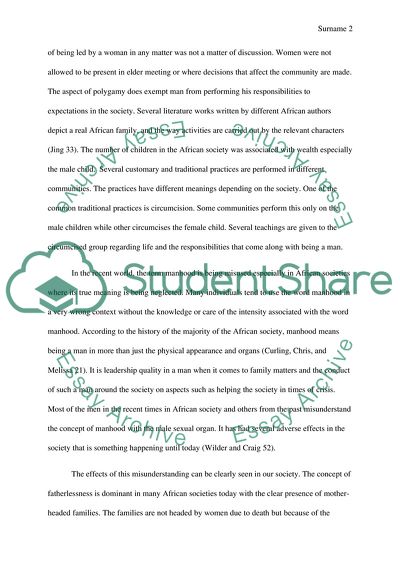Cite this document
(“Manhood in African societies and Family structures in African Research Paper”, n.d.)
Retrieved from https://studentshare.org/literature/1664663-manhood-in-african-societies-and-family-structures-in-african-societies
Retrieved from https://studentshare.org/literature/1664663-manhood-in-african-societies-and-family-structures-in-african-societies
(Manhood in African Societies and Family Structures in African Research Paper)
https://studentshare.org/literature/1664663-manhood-in-african-societies-and-family-structures-in-african-societies.
https://studentshare.org/literature/1664663-manhood-in-african-societies-and-family-structures-in-african-societies.
“Manhood in African Societies and Family Structures in African Research Paper”, n.d. https://studentshare.org/literature/1664663-manhood-in-african-societies-and-family-structures-in-african-societies.


